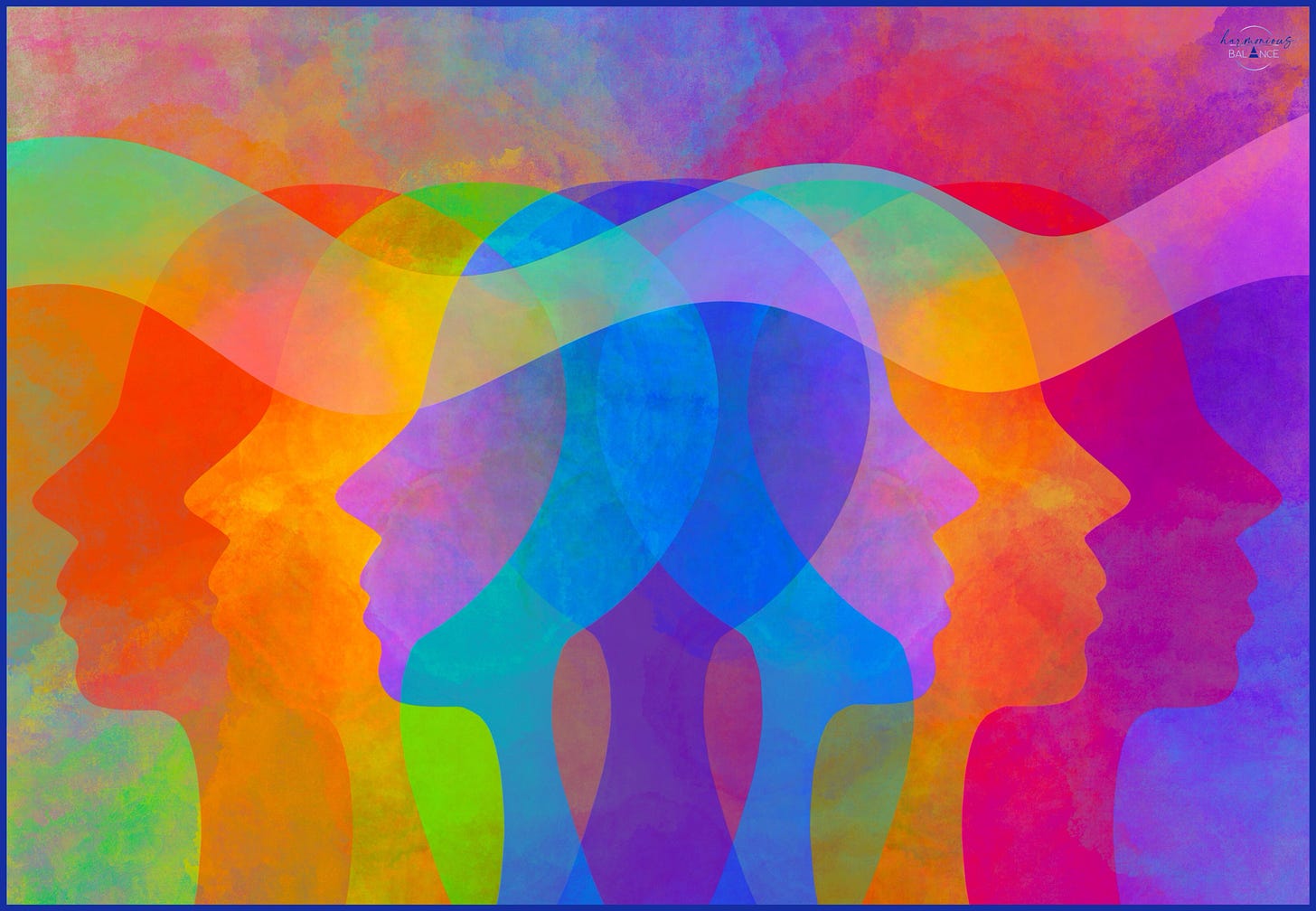Our differences matter
We have more in common than what divides us. We’ve all heard some version of that sentiment at some point in our lives. We especially hear it during election seasons and during unity-seeking moments. I’d be mistaken to sum this idea up as cliche, but I’m left to wonder the extent of our commonality. I don’t think it’s simple arithmetic. It’s not just a matter of us having eight out ten things in common. Therefore we should be able to get along. The two things that we differ on may very well render the other eight null and void.
When it was announced that Vice President Kamala Harris would be a guest on the Call Her Daddy podcast, many people took to social media to air their displeasure. Such displeasure is not surprising. Though it’s not clear if the displeasure is about breaking “politics-free” zones or if the displeasure is about the particular politician. Either way it speaks to a societal fault-line.
In my view, politics-free zones are a myth. We may choose to carve out times when do not discuss politics. But this idea of not talking about it does not mean we shouldn’t talk about it. Quite frankly our lack of talking about it is what creates problems. Yes the conversations could become volatile but the goal should be to figure out how to decrease the volatility, not become comfortable with avoidance all together.
Back to the Call Her Daddy backlash. Many people gave their take on the reasons for the displeasure with the decision to interview our Vice President. One take was rather illuminating to me. In short, it is the idea that if we have something in common then we think we have everything in common. From my understanding, this particular podcast is about sex and relationships and draws an audience of young women, typically under the age of 30. There probably is a lot that this demographic has in common, but no one really accounts for any differences.
And what better way to parse out differences than by talking politics!
Yet the topic of politics is taboo because of its potential to change how we feel about one another. We often find ourselves unpleasantly surprised. In this case, many people chose to cut ties with the podcast. And contrary to popular belief, cutting ties because of political beliefs is not a petty reason. It would only be petty if politics had no bearing on our lives. We like to think that politics has no bearing, but it is pretty omnipresent in our lives. We are governed by the people we elect and the legislation enacted and upheld. For just about every action we take, there is some policy related to it, even simply breathing.
We are caught in an inescapable network of mutuality, tied in a single garment of destiny.
~ Rev. Dr. Martin Luther King Jr.
It’s past time for us to stop pretending that politics doesn’t impact our lives and relationships. It’s time for us to stop deluding ourselves into thinking that silence means agreement. It’s time for us to stop creating false senses of belonging.
I’m not saying that Alex Cooper had to break from her niche topic to speak with the Vice President. But it is highly naïve for her or her listeners to think that if she hadn’t interviewed our Vice President that the commonality between her and her listeners extends beyond their listenership.
Sadly commonality and civility are not what binds us. I see glaring examples of this all the time. There is one example that I have a very hard time wrapping my mind around.
Supreme Court Justice Ketanji Brown-Jackson recently released her book, Lovely One, and went on her book promo tour this past summer. In her book she reveals that one of the traditions of the court is for the last appointed justice to plan a welcome party for the incoming justice. Justice Jackson was appointed to the court in 2022. The last justice appointed before her was Justice Amy Coney-Barrett in 2020. Justice Barrett learned of Justice Jackson’s love of theatre and planned a Hamilton-themed welcome party, a very thoughtful and considerate gesture.

These two justices have nearly diametrically opposed ideological beliefs. I believe it was shortly after his sudden death that it was revealed that Justice Antonin Scalia and Justice Ruth Bader-Ginsburg, ideological opposites, had a very fond friendship. As a society we seem to applaud this kind of civility; these kinds of friendships; Justice Barrett’s kind of thoughtfulness and consideration. But…
We don’t need a kinder, gentler meanness.
~Rev. Dr. William Barber
Don’t get me wrong. I would rather everyone be civil than uncivil. But outside of civility what difference does it really make? Civility should be the gateway to understanding and consensus. Civility is not a replacement for peace. Dr. King says, true peace is not the absence of tension but the presence of justice. Justice, a virtue that the highest court in the land should espouse to the nth degree. Instead, justice is found to be elusive even within the governing body that should epitomize it.
By the way, constitutional does not equal just. But that’s a topic for another day.
Civility is not a replacement for good faith intentions. Similarly commonality is not the absolver of difference. Commonality should soften the edges of our differences. The commonality found in levity and leisure should be leveraged to not only address differences but settle them.
Otherwise, what good is commonality if our differences win out in the end?
Onward to settling differences and Harmonious Balance, my friends!
Johanna
**For customized content requests,1:1 coaching and speaking inquiries, feel free to contact me.**





